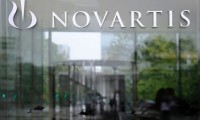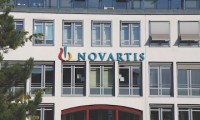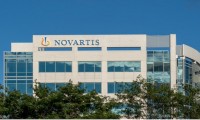-
NOVARTIS Cosentyx® (stuccizumab) approved in China for new indication in psoriatic arthritis
- Source: drugdu
- 112
- January 11, 2024
-
Shanghai Argo Announces Multi-Program RNAi Licenses and Strategic Collaborations with Novartis
- Source: drugdu
- 85
- January 10, 2024
-
As cancer players jump head-first into ADC field, Novartis CEO explains how he’s resisted the temptation
- Source: drugdu
- 90
- January 10, 2024
-
Novartis Returns to Voyager Therapeutics to Reach New Gene Therapy Destinations
- Source: drugdu
- 200
- January 4, 2024
-
Novartis puts ‘Sopranos’ actor in TV spot for MS drug Kesimpta
- Source: drugdu
- 102
- December 14, 2023
-
With More 2024 FDA Filings Planned, Novartis Drug Starts Showing Blockbuster Potential
- Source: drugdu
- 103
- December 13, 2023
-
Daiichi Sankyo scores $182M from Novartis settlement in long-running patent case
- Source: drugdu
- 107
- December 8, 2023
-
Novartis’ Fabhalta approved by FDA as first oral monotherapy for rare blood disease PNH
- Source: drugdu
- 103
- December 8, 2023
-
Novartis drops subpoena request in trade-secret spat with Takeda
- Source: drugdu
- 112
- November 24, 2023
-
Novartis Enters into Deal with Legend Biotech for $100 Million Upfront
- Source: drugdu
- 106
- November 15, 2023
your submission has already been received.
OK
Subscribe
Please enter a valid Email address!
Submit
The most relevant industry news & insight will be sent to you every two weeks.













